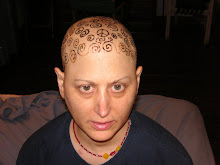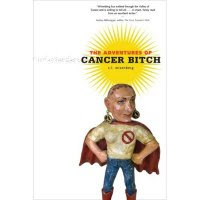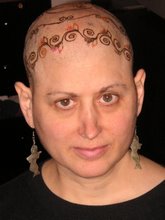When the pretty girl was seven a new girl came to school. She was from France. Her mother was chic with one side of her hair cut short and the other long. The pretty girl adored the French girl and her French mother and fell in love with France. She promised herself she would go to France one day. When she was 14 she began to learn French. When she was 19 she went to Paris and stayed seven years, studying music, singing and other arts.
I met the pretty girl tonight at a French conversation group. She's probably about 30 now, and her French was very very good, unsurprisingly, and she was very sweet. I also met a young man who has been studying mushrooms for 18 months. He rents a garage on the North Side, which he heats, and where he grows mushrooms. And a man who teaches ESL in a school and is frustrated because the parents of one Mexican girl know that she can't hear very well but have never gotten her hearing testing. The school is pushing for her to get hearing aids.
I've written before here about the strangeness of speaking a foreign language with people you don't know. How odd that this person and that are able to understand your non-English. How much easier it is to disclose in your non-native language. What I want to talk about now is how we package ourselves and our life stories. You can read about this in journals of biographical theory. You can present Exhibit A (French girl) and B (her sophisticated mother) and Intangible Exhibit C (the desire to go to France) and it all makes sense. But of course the pretty girl's life is more complicated. We like reading stories because there's causality. We like reading biographies because we learn that X and Y inexorably led to Z. It's the inexorableness that we crave. As historian and biographical theorist Hayden White says: "...there has been a reluctance to consider historical narratives as what they most manifestly are: verbal fictions, the contents of which are as much invented as found..." How I came to this country. Why I want this job. How I chose my major. Why I became a nurse. How Abraham Lincoln became Abraham Lincoln.
How I got cancer? A loose mess. Maybe environment (Which? Houston? Chicago? asthma medicine? plastic cups? hormones in milk?), maybe chance (This little cell got bored and decided to expand?), maybe lack of children, maybe maybe maybe...
The story of cure (of polio, smallpox) is so satisfying. Problem, solution involving heroics, the end. The story of prevention is not a story. It is lack of story. Prevention is invisible. It does not wear a pink ribbon. It does not go for four-day walks to develop its endurance. Prevention can be tracked, but it is always messy: what caused the lower rate of X and Y and Z? Peut-etre ca, peut-etre ca...
skip to main |
skip to sidebar


taramosalata & other dips; photo by Vera Szabó

cream puffs, caprese; photo by Vera Szabó

Don't try this at home. Uh, oh, we did.

L the Haircutter in Background

Finished.

design by Jennifer Berman

At medicinal baths, with testimonials from patients
One Feminist's Report on Her Breast Cancer, Beginning with Semi-diagnosis and Continuing Beyond Chemo, w/ a side of polycythemia thrown in **You don't have to be Jewish to love Levy's rye bread, and you don't have to have cancer to read Cancer Bitch *** Cancer Bitch comes to you from S.L. (Sandi) Wisenberg in Chicago
Click on photo for Cancer Bitch reading/lecture schedule
Blog Archive
-
▼
2008
(89)
-
▼
January
(16)
- The Essential Guide
- What Scar?...
- Artemis in the City
- One Mastectomy, To Go
- Scanning
- Implants--More Dangers
- Replacing, Refilling, Ending, Not Ending
- Anniversary & the Ritual Crushing of the Pills
- The Omniscient Cancer Bitch
- Worry & Not Worry
- Titleist
- What I Learned at the Little Cafe
- Causes, not Cures
- When You Walk Through a Storm
- The Story of the Pretty Girl
- The New Year
-
▼
January
(16)
Cancer Bitch recommends these links:
- Alternet.org
- As the Tumor Turns
- Being Cancer--its on-line book club discusssed my book.
- Big Grrls DO Cry: queer life meets precarious life
- Black Gyrl Cancer Slayer
- Breast Cancer Action
- breastcancer.org
- Chemo Chicks
- Chronic (Illness) Babe
- Code Pink women's peace group
- Collaborative on Health and the Environment
- Colon cancer cowgirl
- Earth Henna
- Friends of Cancer Bitch on Facebook
- Funny Cancer shirts and mugs
- Gayle Sulik, Pink Ribbon Blues
- Geezer Sisters (tho' only written by one of them)
- Get Real About Breast Cancer (w/ pic of Breast Cancer Barbie)
- Gilda's Club
- Goodbye to Boobs (by a pre-vivor)
- Humerus Cartoons
- I got the cancer (lymphoma)
- Mamawhelming
- Organic Consumers Assn.
- Our Bodies, Our Blog
- Paula Kamen
- Planet Cancer
- Recovery on Water
- S.L. Wisenberg/Red Fish Studio
- Skin Deep: un/safe cosmetic list
- Stacey Richter's Land of Pain
- Swimming in the Trees: author Jessica Handler of Atlanta
- Tara Ison
- Terry Tempest Williams
- The Assertive Cancer Patient
- The Cancer Culture Chronicles
- The Fifty-Foot Blogger, another denizen of Fancy Hospital
- Whirled News--better than the Onion
- Women & Children First bookstore
NOTATE BENE
Everything here is as accurate as I could make it. Occasionally I've changed identifying details when writing about others.
Links to audio and video

from my Farewell to My Left Breast party

taramosalata & other dips; photo by Vera Szabó
Farewell to My Left Breast Party

cream puffs, caprese; photo by Vera Szabó
April 12, 2007--The Making of the Mohawk

Don't try this at home. Uh, oh, we did.
The Mohawk Profile

L the Haircutter in Background
The Mohawk Demure

Finished.
Summer henna-wear
design by Jennifer Berman
Life after cancer, Budapest, July 2009
At medicinal baths, with testimonials from patients


